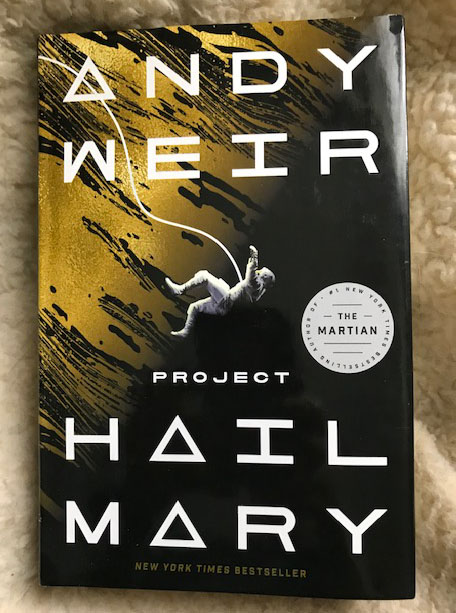Figuring it out. I envy those people that plot and plan and use a date book religiously. Alas, I am not one of them. Every year in January I buy a day planner and vow to write things down and have a handle on dates and deadlines. I plow through, marking haircut appointments, doctor visits, and social media posts to put up. Sometimes in pen, even.
About March I forget to flip through the planner. I found I’m much more comfortable with technology. I set up Google Calendar to nag me about things. More than once. I think that if it comes in on email, it’s real and important. Ditto text messages. For some reason that felt … wrong. I’m a writer, I should be firmly wedded to paper and pen. Once I cast that mindset aside it became easier to get through the day/week/month.
Computers are orderly. But even with nag reminders, I tend to worry. The same applies to writing. I do a loose plot outline, maybe 30,000 words of backstory, and barrel ahead, knowing my brain will drop chunks in as needed. I also don’t mind going back and rewriting, filling things in, smoothing things out. The process is soothing. Meditative almost. I figure it out as I go.
You’re Doing it Wrong
According to lots of writing books that’s wrong. I should plot a book out meticulously and then adhere to the outline. I’ve tried that. According to my brain, it’s also wrong. My brain is wired somewhat differently, as blank pages in the day planners attest. I function from a different place, a place of neurodivergence. Wanting perfection and having to learn it’s mostly unobtainable.
My brain fights itself. (I obviously can non-perfect on the first draft, though. Curious.) But it’s really not the rules, it’s the anxiety over figuring out if I’m following the rules exactly. I like rules when it applies to certain things. Like submitting. I want consistency. I also want a purple unicorn. (Who doesn’t?)
Take querying, for example. I’ve started querying with my newest fantasy novel. The diversity of methods to query is overwhelming. What’s worse is everyone wants something different, from the number of pages to submit to whether to also submit a one-sentence blurb, a one-paragraph blurb, or just a summary. Or all of it. Comp books, bio (How long? About me or my writing? Both? Neurodivergence fueling my writing? etc.
I figure it out as I go but not without a lot of stress. “Submit a synopsis.” Easy, right? Not for my perfectionist brain. How long? 500 words, is 537 words okay? 1000 words, one page, two pages? If a sentence runs onto page three, am I doomed? In what format do I put everything? Single spaced, spaces between paragraphs or indents? I go research—and get conflicting answers. Depends. There is no right way to do this, I found out. Only wrong ways. So. Many. Wrong. Ways. If I don’t do something exactly right will it wreck my chances? My brain says yes, and is firm about it. Stupid brain.
Figuring it Out Piece by Piece
It may seem like small stuff but it looms larger and larger. I close out and run away until I feel ready to start over. I want to know the exact parameters of the box, and that isn’t an option. Figuring it out as I go from site to site is exhausting. This is where the stubborn side comes in. I will not be defeated by my overthinking brain. It’s also where the calendars come in.
In order to beat my own thought process, I assign myself a day to submit. I target the agent, study the parameters, and figure it out as I go. Copy it down. Refer back to it a million times. One section at a time. I can do that, oddly functioning brain or not. One down, I schedule a time to do it again, recovery time in between, and make a folder full of the snippets of things I need so I don’t reinvent the wheel. (I love reinventing the wheel. This new wheel might be better than all other wheels ever made.)
Slow, but it’s what works. I grew confident enough to do multiple submissions on the same day. There’s drinking copious amounts of coffee to calm my anxious brain and jump-start productivity. I corral the OCD tendencies and promise them chocolate when it’s all through. The Brain draws pictures of unicorns on the blank pages of my day planner. I quit asking myself, What’s the worst that can happen? Kick All or Nothing to the curb. I gently urge perfectionism to the side and give it a Corgi puppy. I’ve made peace with Figuring It All Out As I Go. At least for now.
Some of My Similar Essays:
Sometimes You Just Need to Get Out of Your Own Way
Staying Afloat in a Writing Ocean








